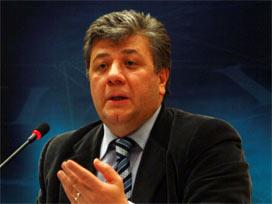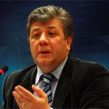
Ergenekon Investigation Exposes Divisions Among Turkish Military Officers
Publication: Eurasia Daily Monitor Volume: 6 Issue: 54
By:

As the prosecutors deepen their investigations into the Ergenekon criminal network, they have found interesting evidence that indicates two opposing camps within the Turkish military. Recently, the neo-nationalist daily Cumhuriyet‘s Ankara correspondent, Mustafa Balbay, was detained on accusations of being a member of Ergenekon. Balbay was first arrested in July 2008. The police seized his computer and taped his telephone conversations; but at that time the court found the evidence insufficient to keep him in custody (ANKA Haber Ajansi, July 4, 2008). The police continued its examination of Balbay’s seized computer, however, and rescued some of the deleted documents and his diaries, which give evidence of contacts with a group of generals who were preparing a military coup against the ruling Justice and Development Party government (www.tempo24.com.tr, March 16).
Mustafa Balbay’s diary provides details about groups of generals divided between supporters and opponents of a coup. This corroborated the diary of the former commander of the Sea Forces, retired Admiral Ozden Ornek, which was leaked to the media in April 2007 and revealed two failed coup d’etat attempts in 2003 and 2004. Balbay mentioned, for example, a meeting with General Sener Eruygur, who was the commander of the Gendarmerie Forces between 2002 and 2004 and is now under arrest for his alleged involvement in Ergenekon. In Balbay’s notes, Eruygur complains about then-Chief of General Staff Hilmi Ozkok and current Chief of General Staff General Ilker Basbug for not being supportive of a military coup against the AKP government (www.tempo24.com.tr, March 16).
Moreover, the Turkish press reported that the police had seized documents showing that generals who wanted to topple the government had organized groups of officials to implement their plans and had enlisted officials who would be appointed to key bureaucratic positions after the coup (Vatan, March 19). Another indication of the division within the military is a statement by former President Ahmet Necdet Sezer that "If Chief of General Staff Hilmi Ozkok were to become president, it would further divide the military" (Taraf, March 20).
In addition to the Ergenekon documents, statements by retired General Hursit Tolon indicating division among the generals, surfaced on the Internet. Tolon, who is accused of being a leader of the Ergenekon network, said that "after General Hilmi Ozkok became the Chief of General Staff, the TSK [Turkish Armed Forces] lost its unity" (www.haber7.com, March 18)
Another document reveals a telephone conversation between an Ergenekon suspect and retired Brigadier General Kaya Varol, who classifies the generals as "NATO Generals and Field Generals." Varol claimed that "Those who went to NATO missions have no idea what is going on in the field in Turkey. Therefore, they do not understand the essence of counterterrorism, etc." (www.habervaktim.com, September 6). It becomes clear from the conversation that those who served in the field are considered patriots while those who served in NATO missions are not.
Aside from the Ergenekon investigation, many classified documents leaked to the media in recent years testify to serious failures by military leaders. For instance, images from unmanned aerial vehicles that were leaked to the liberal daily Taraf clearly show PKK militants about to attack the Aktutun military outpost, but the generals failed to prevent the assault (Taraf, October 14, 2008). Taraf and other dailies have published many classified military documents over the last two years that never could have been obtained if there were no polarization among officers.
Mahmut Ovur, a political observer and columnist who closely monitors developments in Ankara, believes that up to 70 percent of Turkish military officers support the Ergenekon network. However, 30 percent of the officers are not happy about the involvement of the Turkish Armed Forces in civilian politics and oppose the 70 percent who sympathize with the Ergenekon network (Taraf, January 12). Reports in the Turkish press support Ovur’s assertion that some generals have given orders for money to be collected within military compounds for the arrested Ergenekon suspects from the armed forces (Bugun, March 19).
At this point it is not known whether the division among members of Turkish Armed Forces is ideological or merely a temporary split caused by the AKP’s being in power. Meanwhile, it remains to be seen whether or not these divisions among Turkish military officers will turn into a major political battle. It seems that as long as the Ergenekon investigation undermines the positive image of the armed forces, the current Chief of General Staff General Ilker Basbug will have difficulty reunifying the military. If Basbug distances himself from those who are accused of being leaders of Ergenekon, their sympathizers on active duty may become alienated. If he does not, he will be harshly criticized by the liberal media and the majority of people who support the Ergenekon investigation.




